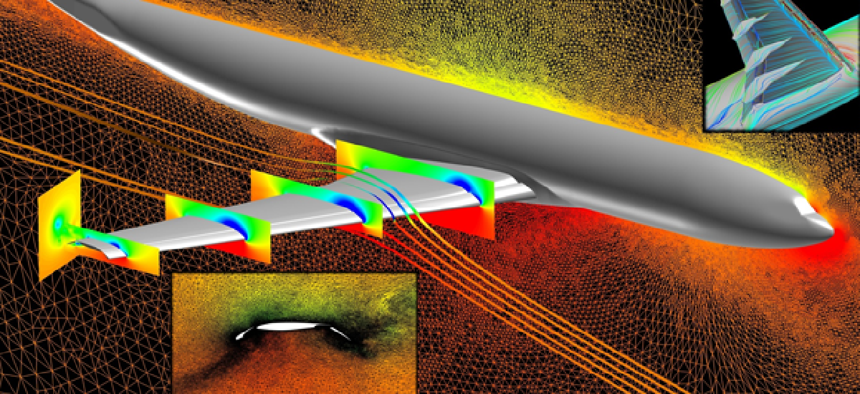NASA crowdsources rocket science software tune up


Connecting state and local government leaders
The FUN3D software that aviation researchers use for computational fluid dynamics modeling needs a tune up so that the supercomputer it runs on can process it more quickly.
Even supercomputers need help sometimes.
The FUN3D software that NASA’s aviation researchers use for computational fluid dynamics modeling needs a tune up so that the supercomputer it runs on can process it more quickly. The space agency’s High Performance Fast Computing Challenge asks qualified programmers to analyze the software’s performance bottlenecks and identify possible modifications that might lead to reducing overall computational time.
"This is the ultimate 'geek' dream assignment," said Doug Rohn, director of NASA's Transformative Aeronautics Concepts Program.
The FUN3D code dates back to the late 1980s. It's largely based on modern Fortran that runs on NASA's Pleiades supercomputer, supporting advanced aviation simulations and other applications using computational fluid dynamics.
According to the agency, existing computational fluid dynamics tools are too slow for some of the more advanced engineering simulations required to push the envelope on space travel. NASA officials are looking for a 10 to 10,000-fold performance improvement without any decrease in accuracy while utilizing the existing hardware platform.
"This challenge is specifically targeted to speed up the [computational fluid dynamics] portion of our aerospace research," said Michael Hetle, TACP program executive. "Some concepts are just so complex, it's difficult for even the fastest supercomputers to analyze these models in real time."
The competition is open to U.S. citizens over the age of 18. Four winners will share $55,000 in prize money, courtesy of sponsors HeroX and TopCoder.
The HeroX portion of the challenge seeks broad ideas and approaches for improving the performance of FUN3D. The Topcoder challenge seeks code modules that accelerate specific aspects of the FUN3D performance.
Entries are due June 29 and winners will be announced Aug. 9.
NEXT STORY: Uncovering insights in IT spending





